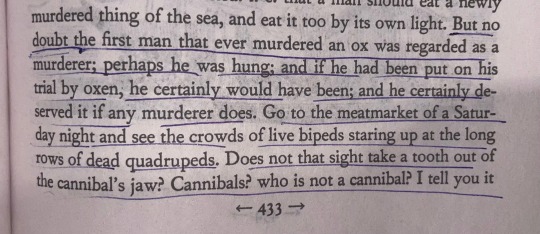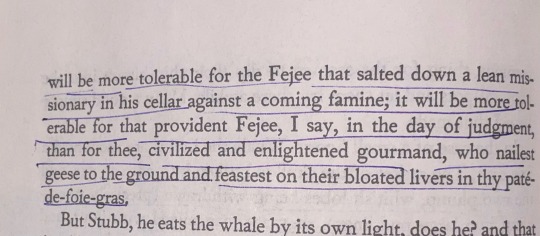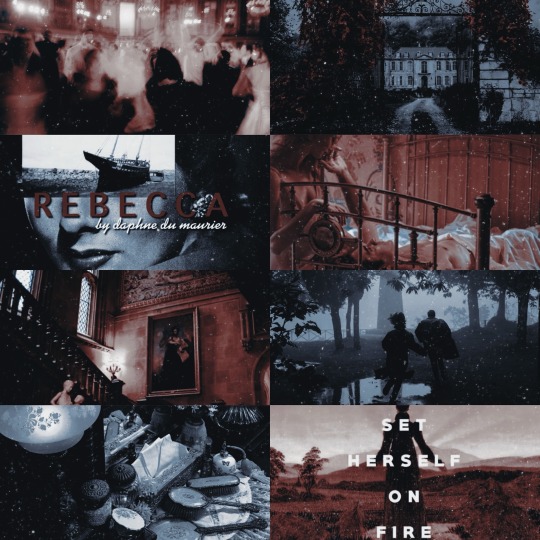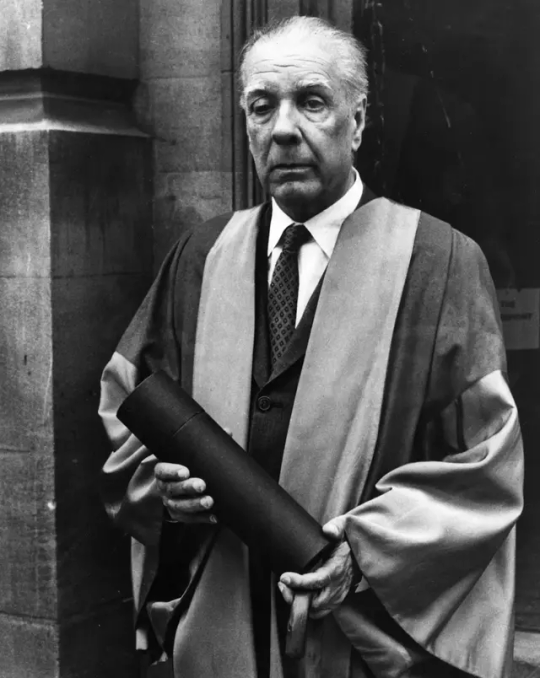#20th century authors
Explore tagged Tumblr posts
Text
"And, as she spoke, I had a sudden vision of broad spaces, virgin tracts of forest, untrodden lands... I seemed to see her for a moment as she was, a proud wild creature, as untamed by civilization as some shy bird of the hills."
Agatha Christie, The Mysterious Affair at Styles (1920)
#my girl mary cavendish!!!#agatha christie#the mysterious affair at styles#hercule poirot#arthur hastings#mary cavendish#murder mystery#fiction#quotes#literature#british lit#british literature#english literature#english lit#20th century authors#20th century literature#20th century lit#cozy mystery#cosy mystery#books#books and novels#book quotes#quotations#literary quotes#mas#e
48 notes
·
View notes
Photo
Just gonna reblog this again with some more context: the illustration is from Policeman Bluejay, a book written by L. Frank Baum under the pen name "Laura Bancroft." (You can read the whole thing—with the illustrations!—online here.)
Enright, who was architect Frank Lloyd Wright's younger sister, also illustrated another book in this series containing a story called Bandit Jim Crow. It's got some, uh, troubling implications, but also I really wanted everyone to look at this cover:


That's my guy.

illustration by Maginel Wright Enright, c1907
#crows#l frank baum#Maginel Wright Enright#1900s#20th century authors#illustration#dubious metaphors#corvid#birbs#tiny policeman bluejay's baton is p cute too
110K notes
·
View notes
Text
I recently got the 1995 book Christopher Lee and Peter Cushing and Horror Cinema by Mark A. Miller and decided to put together some of my favorite quotes. I bought the first edition because it was cheaper, but the second edition had some revisions and expansions, what exactly was different I don't know (I'm sure it addressed Lee's big explosion in popularity in the early 2000's among other things), but there's still lots and lots of interesting material in here; plus, to my surprise the copy I got was signed by the author himself back in 1995, so that's pretty cool.
Anyway, here's some quotes for ya:
These first two quotes are Vincent Price talking about Lee and Cushing which I thought were absolutely darling. Here's the one about Lee:
Everybody told me that he was rather stiff and unbending and not very funny. Well, we screamed with laughter from the minute we shook hands until now. We get along just like mad... write each other rude notes and funny letters and telegrams and postcards and, you know, anything we can find that we know will tickle one another. He's one of the few actors in my life that I have stayed in touch with, strangely enough. If you get him on a subject that he likes, he's very warm and vibrant. I think he's got a wonderful sense of humor, but I don't think everybody knows how to get at it. For some reason or other we strike each other as funny, and it's wonderful fun to be with him.
Here's him about Cushing:
He's nothing like Christopher Lee because Peter's a very wiry, little fellow. But Peter is one of the strongest men I ever knew in my life. I had to do several fight scenes with him [in Madhouse]. My God! He can throw you! He doesn't fake it at all. Nobody warned me about this, and I was sort of battered and bruised. He's a very realistic and very serious-minded actor. I like Peter very much, and I hear from him always at Christmas. On our birthdays we send each other the funniest cards we can find too. He's a very gentle, sweet man. I am very, very fond of him.
Cushing was, in fact, not a little man, but of course Price would have seen him as one from his perspective lol... The part about Cushing apparently being incredibly strong is pretty wild considering Price was referring to him during the making of Madhouse, when he had spent the last 2-ish years losing a lot of weight, smoked like a chimney (the book mentions at one point that he could smoke up to 50-60 cigarettes a day before he quit), was a vegetarian, and was in his early 60's. If he was strong enough to toss Price's tall ass around like a rag doll then (which is a very funny mental image), how strong was he during his prime???
Here's a description of the Lee family cheering up Cushing for the holidays during the making of Horror Express:
He faced his first Christmas without Helen and in a country that was not even his own. Luckily he found solace on Christmas Day in the warm family gathering of the Lees in their Madrid hotel. Gitte and Christina had flown over for the holiday, and they invited Peter to spend the day with them. This was the fourteenth film in which they had both acted since The Curse of Frankenstein fifteen years before, and one that offered them many great scenes together. But their best scene together was the one in that Madrid hotel on Christmas in which Peter Cushing received the emotional support he needed so desperately. The next morning Cushing was back at the studio, cheerfully ready for work.
So sweet... For anyone wondering, this book did not mention anything about Lee supposedly comforting Cushing with his presence in case the latter ever had any night terrors while making Horror Express. I'm starting to think that story might be made up! Maybe it was mentioned in the second edition, or maybe it was mentioned in one of the interviews or whatever that Miller used for researching this book. My search for a primary or secondary source continues.
Here's actress Lorna Heilbron about Cushing and Lee during the making of The Creeping Flesh:
Peter Cushing is a brilliant actor I think. I was, of course, playing his daughter, and Peter had quite recently lost his wife Helen and was grieving for her and was very open about this. He related to me as a father and was tremendously caring and supportive, especially as he felt that I resembled Helen, so we had a rather intense relationship where I felt he really "lived" his part in the film. He came the first day on the set with his script covered, literally covered, with notes he had written about what he felt his character would do or be feeling at any particular time. He also knew down to the last detail what props he would require and had obviously chosen his costumes with immense care. Within all this careful forethought he was very flexible so that if an actor gave him something unexpected, he would respond to this and was willing to go with what was happening "now". He was charming, courteous, and clever and was dearly liked and admired by everyone. At that time he was, as I said, feeling very sad and so was clearly very vulnerable. He would take himself on his own to have a bit of a wander and, I suspect, a jolly good cry. I adored him. I didn't get to know Christopher Lee so well, mostly because I didn't actually have many scenes with him and partly because he kept "himself to himself" as we say over here. I remember he had a most wonderful singing voice, of which he was justly proud, and which would go ringing round the corridors of Shepperton. The crew called him "Rabbity Lee" because he loved to talk, which he did very amusingly and at some length. I have often felt he was a much better actor than some of his material. He and Peter seemed close and distant at the same time. They probably didn't have that much in common apart from a very strong symbiotic working relationship.
Rabbity Lee… 🥲
Next is Price, Lee, and Cushing's opinions on House of the Long Shadows, which I feel each perfectly encapsulate their personalities.
Vincent Price spoke bitterly about the film in 1991: "A disaster - because the man, whoever - I can't even remember his name; psychosomatically I've forgotten it - the guy who directed it and the [editor] who cut it... they just cut all the comedy out of it... I hated it. Desi Arnaz, who was very good in it - they just turned it all over to him so that you never had the four people you wanted to see ever doing anything at all. That was that stupid director." When asked in 1992 if he agreed with Price that the film constituted a missed opportunity for the all-star team-up, Christopher Lee quickly responded: "I do, without a doubt. He was absolutely right. It's the old, old story: get it on film, finish it in time and on budget, and if it's in focus, we can sell it." Asked also of his memories of Pete Walker directing him, Lee replied simply, "He didn't." Peter Cushing's only complaint is that he suffered from bronchitis while making the film in a cold, damp, seventeenth-century manor house in Hampshire that had no heat. Because he found working with Lee, Price, and Carradine to be "a joy," Cushing summed up the film as "lovely to do."
Speaking of House of the Long Shadows, I wanted to bring up one particular criticism Mark A. Miller had of the movie to be very ironic if you've been in the fandom for this era of horror whatsoever on Tumblr. Miller absolutely hated the iconic "bitch" line from Price, saying of it:
Instead of the good-natured, funny lines that work so well in horror send-ups like The Raven, A Comedy of Terrors, and Young Frankenstein, in this film we only hear Price's character call Lee's a "bitch" - the embarrassing epitome of the script's nasty, witless spirit. After Price's line, the film seems more like a cruel practical joke on the venerable cast than an amusing parody of their images.
I agree with many of Miller's takes throughout the book, but definitely not all of them, and this is a case of that. That line's the best part of the movie! It's Vincent Price saying "bitch" in cursive, it's so delicious! Did Miller hate fun? I can't ask him because he's dead. What if the line was an ad-lib from Price, huh? If Miller knew how popular that moment is on this website, he'd probably be baffled, lol.
#christopher lee#vincent price#peter cushing#hammer horror#still in my mid-20th century horror movie phase sorry not sorry#if I stay in this phase long enough I might make a side-blog for it#overall I enjoyed the book quite a bit even if some of it was the author bitching about 70's-90's slashers and other gory horror movies
130 notes
·
View notes
Text


i really think this was the novel that birthed ecocriticism like my god. 1851. 1851!
#1 8 5 1 ?#I really have to pause every few pages at how beautifully it works through the brutality of capitalism and colonialism and industrial#fishing and just take a step back. he wrote this in 1851.#Melville makes every other 19th and 20th century author appear so hopelessly uneducated and tone deaf#like you grow up reading European fiction and quite nothing shows how starkly ensconced these authors were#in their colonial upper class privilege until you read something that shows you the beating#gory heart of the economic structure at the time#THIS PREDATED CAPITAL VOLUME 1#he wrote this!!! he wrote this before Marxist vocabulary even EXISTED#jes us ch r i st#moby dick#Herman Melville
118 notes
·
View notes
Text

‛𝚢𝚘𝚞 𝚕𝚘𝚜𝚝 𝚝𝚘𝚞𝚌𝚑 𝚠𝚒𝚝𝚑 𝚝𝚑𝚎 𝚠𝚘𝚛𝚕𝚍 — 𝚊𝚗 𝚒𝚜𝚕𝚊𝚗𝚍 𝚠𝚊𝚜 𝚊 𝚠𝚘𝚛𝚕𝚍 𝚘𝚏 𝚒𝚝𝚜 𝚘𝚠𝚗. 𝚊 𝚠𝚘𝚛𝚕𝚍, 𝚙𝚎𝚛𝚑𝚊𝚙𝚜, 𝚏𝚛𝚘𝚖 𝚠𝚑𝚒𝚌𝚑 𝚢𝚘𝚞 𝚖𝚒𝚐𝚑𝚝 𝚗𝚎𝚟𝚎𝚛 𝚛𝚎𝚝𝚞𝚛𝚗.’
𝐚𝐧𝐝 𝐭𝐡𝐞𝐧 𝐭𝐡𝐞𝐫𝐞 𝐰𝐞𝐫𝐞 𝐧𝐨𝐧𝐞 𝐛𝐲 𝐚𝐠𝐚𝐭𝐡𝐚 𝐜𝐡𝐫𝐢𝐬𝐭𝐢𝐞 (𝟏𝟗𝟑𝟗)
#mine#storyseekers#my edit#edit#bookedit#book edit#literaturedit#literature edit#litedit#lit edit#tvedit#tvshowedit#attwn#attwnedit#and then there were none#and then there were none 2015#if the prev tag encourages any of you guys to watch the bbc miniseries i will be very happy. such an underrated adaptation </3#female authors#agatha christie#agathachristieedit#christieedit#murder mystery#20th century literature#classic literature#british literature#english literature#aesthetic#book quote#book aesthetic#literature aesthetic
95 notes
·
View notes
Text
Thinking about how The Secret History could have been written in the 2020s as well as in the 1930s or as it actually was in the 90s... It's such a versatile and compatible-to-any-century book. Leaving it open to the reader, to imagine the time the characters live in... It's what makes the book so amazing & the truly timeless classic it has become. In 50 years our descendants will read it, and still be mesmerized by it like we were when we read it for the first time. They will still be, hopefully, to relate to it as we do. What are your thoughts on this?
58 notes
·
View notes
Text
Agatha Christie, age 16, Paris, 1906

21 notes
·
View notes
Text
"Her tall, slender form, outlined against the bright light; the vivid sense of slumbering fire that seemed to find expression only in those wonderful tawny eyes of hers, remarkable eyes, different from any woman's that I have ever known; the intense power of stillness she possessed, which nevertheless conveyed the impression of a wild untamed spirit in an exquisitely civilised body -- all these things are burnt into my memory. I shall never forget them."
Agatha Christie, The Mysterious Affair at Styles (1920)
#my girl mary cavendish!!!#agatha christie#the mysterious affair at styles#hercule poirot#arthur hastings#mary cavendish#literature#literature quotes#lit quotes#english literature#english lit#british literature#british lit#english authors#british authors#20th century literature#20th century lit#20th century authors#murder mystery#cosy mystery#cozy mystery#quotes#quotations#literary quotations#mas#e
6 notes
·
View notes
Text
Closely connected to the act of name signing was the act of writing poems on walls. As scholars have already pointed out, with beginnings traceable to the Six Dynasties, wall poems (tibishi) were already very widespread during the Tang. By Christopher Nugent's count, well over one thousand entries in the Complete Tang Poems had titles indicating that they began as inscriptions on some surface other than paper or scrolls. These surfaces included walls at places of gathering and transit, such as post stations, scenic sites, inns, and increasingly in the latter part of the Tang, Buddhist temples, which also served public roles for lay gatherings and performances. (100)
In one anecdote, a latecomer casts aspersions on a first writer's literary skills, comparing him to the general Xiang Yu (232-202 BCE), who was infamous for having learned just enough writing to manage his name: "Li Tang signed his name on a pavilion in Zhaoying County. When Wei Zhan [jinshi degree 865] saw it, he took a brush and dashed off a taunt: 'The rivers of Wei and Qin brighten the eyes, / but why is Xiren short on poetic spirit? / Perhaps he mastered only what Beauty Yu's husband could / learning to write just enough to put down his name.' " ... It would not be a stretch to imagine the sniggering of those who read this inscription in a frequented pavilion. (102)
For a degree seeker in Chang'an, these circuits of information and judgment received more discussion than the actual examination itself. Tang literati wrote copiously about activities such as name signing, public exposure, and triumph. It would not be an exaggeration to say that in ninth-century temples and popular recreation areas, the vertical spaces were teeming with verses that clamored for attention. (104)
selections on poetic graffiti from linda rui feng's city of marvel and transformation: chang'an and narratives of experience in tang dynasty china (university of hawaii press, 2015)
#china#tang dynasty#tagamemnon#<- couldn't stop thinking about graffiti from pompeii while reading this chapter so i suspect it may be of interest to rome-heads in genera#this was very promising book that felt like it failed to fully deliver - can't tell if the author was trying not to get into aspects which-#-have a paucity of surviving sources or if perhaps she was trying to avoid stepping on the toes of existing scholarship#e.g. nugent's mentioned book on poetry production/circulation or juduth zeitlin's article on wall poems and anxieties of loss#but even though i felt like it needed another 50-100 pages of fleshing out there are some generally remarkable moments in here#bits that can be put in remarkable parallel with imperial rome certainly; more fascinatingly with 19th- and early 20th-century fiction-#-that deals closely with 'new' modern urban life. where the forms & patterns of the city itself collude with residents against the newcomer#some interesting notes on bai juyi in here too. though i don't know if they're news to any real bai juyi stans out there
39 notes
·
View notes
Text
it really is SUCH a shame that there’s no episode of TOS where the enterprise crew time jumps to Regency-era England or goes to a planet that modeled its culture on that era or something, because it would truly slap for every single main character. Like I don’t even have to explain why this would be awesome for Spock— Mr. I’ll-smash-a-computer-with-my-bare-hands-before-I’ll-admit-I’m-horny himself, king of repression, who basically recreated the famous Pride and Prejudice Hand Flex Scene™️ with his beloved Captain that one time, who meets a blind woman with a high tech gown that helps her “see” and LITERALLY tells her to give his compliments to her dressmaker, who mislead a woman once about his affections and tenderly promised to safeguard her reputation forever about it, who has the perfect angular features to be set off by a cravat—I mean, you get it, but then you’ve also got Kirk—handsome, affable, brave Naval captain who loves his crew more than himself, who falls in like deep profound love with every woman the plot throws at him—and then McCoy—cantankerous, sure, (ever heard of a grumpy/sunshine trope??) but with impeccable, downright old school manners towards women and, yeah, a doctor’s not that prestigious in Regency times, but for like a young lady in trouble who needs the protection of a man’s name or who just wants to piss off her stuffy aristocrat family by marrying “beneath” them, who could be better? If you throw Scotty in the mix, well, he’s Scottish, which [points at a whole subgenre of regency romance novels] is all he’d really need. I’m just saying they would have CLEANED UP, okay??
#by main character I do mean like main cast/top billing#which is why I’m not including uhura and sulu and chekhov#also because they don’t go off on landing party missions that much they stay on the bridge#I included Scotty because he does go with them more often and also…because he’s Scottish literally#like….do you know how many romance novels are just like ‘Scottish men are irresistible to young English maidens’??#it’s NUTS quite frankly#why aren’t any English maidens obsessed with like….welsh guys??#extra funny to imagine this alien culture modeling itself after the Regency era and they just use like 20th and 21st century romance novels#as their guide which like yeah they are well researched in many cases but also they’re primarily designed for escapism not accuracy#so authors will just hand wave certain things#my kingdom for Spock saying ‘fascinating Captain. They seem to base their culture on the fictional though anthropological writings#of 19th century writer Jane Austen’#if they were making it now this could happen#and unfortunately people would call it a Bridgerton inspired episode#and we’d all have to pretend that wasn’t insane#also to be clear no shade at Scotty he’s great and he’s got a lot going for him but in a regency romance he’d have everybody on accent alon#star trek#tos#do I dare tag this as Jane Austen??
25 notes
·
View notes
Text

Félix Lorioux (French, 1872–1964) • Illustration of Tom Thumb from Tales of Perrault , Charles Perrault, authot (1628-1803) • 1926
#illustration#art#illustrator#artwork#félix lorioux#french artist#early 20th century french illustration#book illustration#charles perrault#french author#french fairytales#17th century fairytales#sassafras and moonshine blog#illustration blogs on tumblr#vintage illustration#fairy tales
28 notes
·
View notes
Text
Actually to expound on my notes from the nonbinary Dune post I do think it's funny how the actual psychic powers of the Bene Gesserit are mostly lame.
Like, the majority of Bene Gesserit powers are essentially martial arts. They're sex monks. They train for years to vibrate their voices in a specific way that fucks with people's brains and know all sorts of pressure points and stuff. It's hard to learn, but Helen Mohaiam doesn't take the fact that Paul can do these things as proof that he is the Kwisatz Haderach because theoretically any man trained from birth could.
The actual psychic shit--being able to connect with the memories of every other Reverend Mother--seems to functionally do nothing outside of making Reverend Mothers weird assholes. It enables the whole "our plans our measured in centuries" stuff but so would... writing those plans down. Which they do anyway.
And it's just never explained why making a boy who can receive all his ancestral memories would also allow said boy to see through time. Just weird bio-essentialist stuff from one of the most renowned science fiction authors who was also an asshole and a creep.
7 notes
·
View notes
Text
As most novels I read feature sexism in varying degrees, there's something orientating about reading one so imbibed in a more extreme level of misogyny that it helps recalibrate one's standards
#a 19th century author being a misogynist in the narration but still imbuing their female characters with complexity and interiority#is more bearable for example than the 20th century author who's outwardly more normal but whose characters and worldbuilding betray#on scrutiny a deep sense of scorn#inane post
23 notes
·
View notes
Text

‘𝐼 𝑐𝑜𝑢𝑙𝑑 𝑓𝑖𝑔ℎ𝑡 𝑤𝑖𝑡ℎ 𝑡ℎ𝑒 𝑙𝑖𝑣𝑖𝑛𝑔 𝑏𝑢𝑡 𝐼 𝑐𝑜𝑢𝑙𝑑 𝑛𝑜𝑡 𝑓𝑖𝑔ℎ𝑡 𝑡ℎ𝑒 𝑑𝑒𝑎𝑑’ — daphne du maurier, rebecca (1938)
#mine#storyseekers#edit#my edit#book tag#bookedit#book edit#literature edit#literaturedit#litedit#lit edit#rebecca#+ as inspo#rebecca 1940#female authors#daphne du maurier#gothic fiction#gothic romance#gothic books#gothic literature#classic literature#20th century literature#english literature#classic lit aesthetic#book aesthetic#literature aesthetic#rebecca de winter#maxim de winter#mrs danvers#mrs de winter
90 notes
·
View notes
Text

Je me pose sans cesse cette question : après ma mort, y aura-t-il sur cette Terre quelqu’un qui se souviendra de moi avec amour ? Mon âme gémissante, gémissante, brûle d’un unique désir : être aimée – oh, être aimée. Connaître – rien qu’une fois – l’expérience d’être aimée ! Qu’un seul cœur humain magnifique connaisse la douloureuse solitude du mien, qu’une seule âme humaine fusionne avec la mienne dans un long, un infini Repos.
Mary MacLane. Que le diable m'emporte.
#litterature#journal#journal intime#diary#citation#quote#quotes#20th century#love#love quotes#amour#mary maclane#american author
10 notes
·
View notes
Text

"Pierre Menard, Author of the Quixote" is available to read here
*Originally published in Spanish under the title "Pierre Menard, autor del Quijote"
#short stories#short story#pierre menard author of the quixote#pierre menard autor del quijote#spanish language literature#argentinian literature#20th century literature#have you read this short fiction?#book polls#completed polls#links to text
30 notes
·
View notes